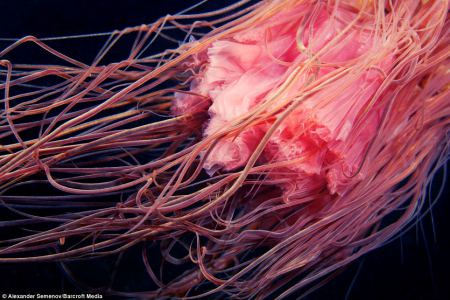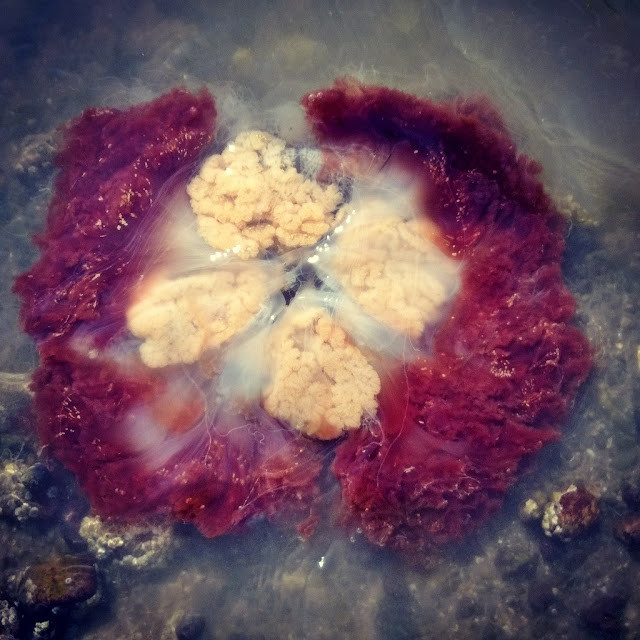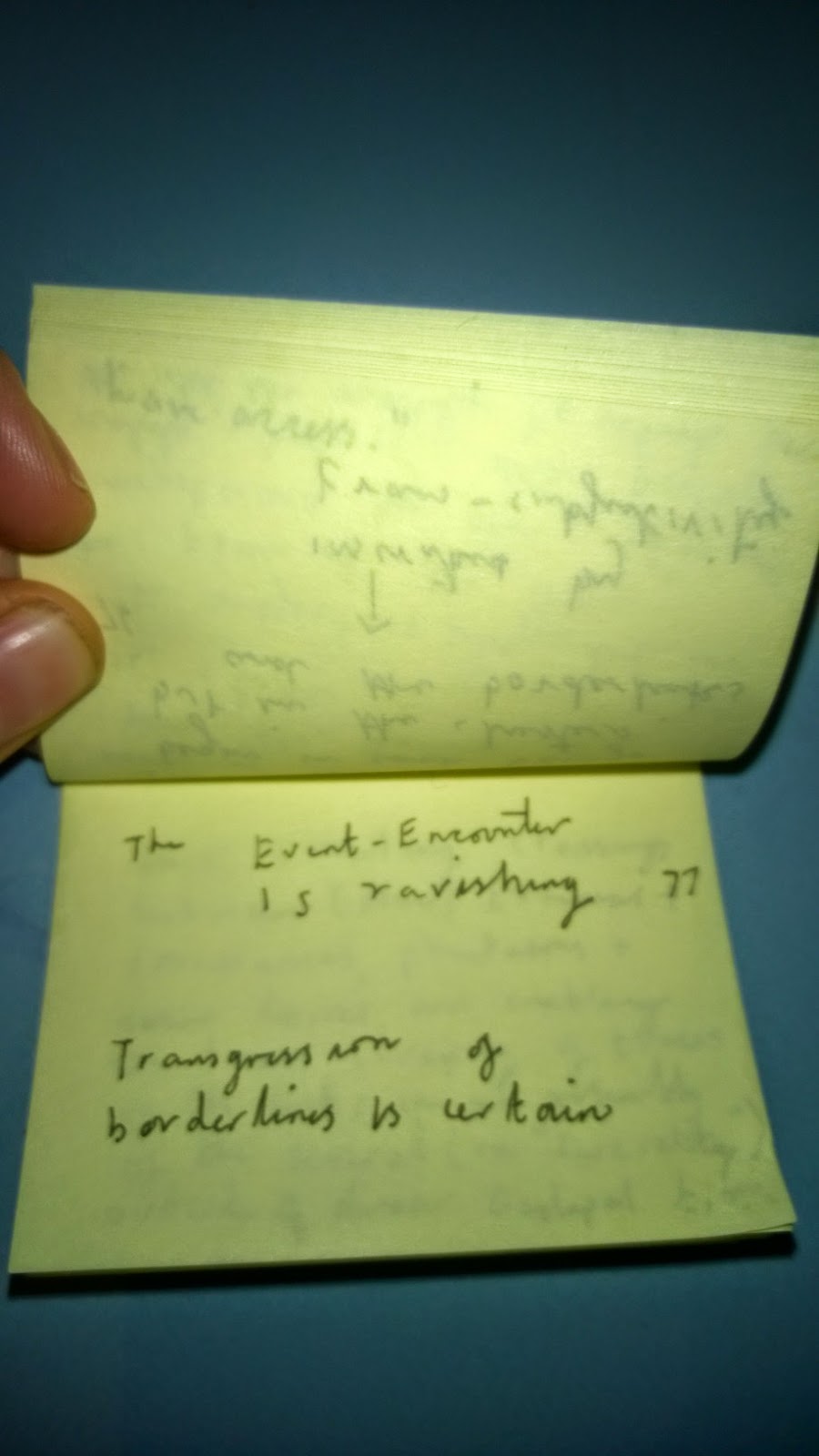Wednesday, 16 December 2015
Wednesday, 2 December 2015
Wednesday, 21 October 2015
Cân yr Ysgol Gymraeg
Lights Out Listening Group (Project Radio broadcast), &Model Gallery, Leeds 25. 10. 15, 14:30 www.projectradio.uk
Thursday, 3 September 2015
Tuesday, 12 May 2015
Neither folded not disintegrated, my body is flat on the ground, and the figure looms over me. 11.5.15
I re-enter the interior space
having departed and notice that the floor is still damp with mop streaks that
flow in ergonomically emergent figure of eight shapes, becoming-figures that reconstitute
themselves as replicated shapes. The floor has a bluish hue, or is that the
moonlight cascading in through the floor-to-ceiling windows that constitute the
inside/outside boundary… I pass through the central hall in half-light making
for a particular corner of the interior, where I have been lured or else a zone
of my own desire, passing across invisible lines of this desire that bisect the
damp swirls my body produced, supplemented by prosthetic cleansing arm:
infinity marks, passages from there and back again, residual ouroboric
gestures.
At the moment of recognition uncanny and disturbing to my linear sense, which dictates the space-time
passage divested of by the dream and yet, insistently, by the peripheral
conscious mind, I register, in the play of apprehension and loss, my desire is
to temporise this scene: to hold-off its psychic consummation, to defer the inevitable
in a split second marked by its being captured.
At this very moment, the scene taut
and intensified, from out of the corner of my eye I witness a figure
brandishing a rotten, curved length of tree branch and in the next second, my
eyes darting in synchronicity with my body, I witness a figure, more proximate
to me, standing rigid and smiling with a whip, which curls back in the midst of
a violent crack, makes contact with my rigid, terrorised body, and I am
immediately displaced. I am horizontally comported; I have neither folded not
disintegrated, my body is flat on the ground, and the figure looms over me.
What happens in this scene of
violation is not a physical collapse. There is no pain and there is no physical
trauma that I know of: I know nothing of what is happening beyond the rush of
fear that is all the more intense for its immediacy and lack of context.
I realise I have been lured to the
building for the express purpose of receiving this beating as boot soles rain
down on my face and upper-body in rapid succession, infinitesimal moments of
respite charged with scopic dread, for my upwardly fixed eyes are wide open and
the entire frame of my visual perception is taken up by the undercarriage of a
man. Dressed entirely in black, boots black, his substantially proportioned
lower-body muscular structure is poised in attack-mode; suffused with leaden
energy, his whole body is engaged, his vital organs plume with an annihilative
desire that is limitless.
I think, why does he go on pulverizing
me? I must be already dead, at which juncture I resist the attack by way of
inching across the articulation barrier that holds me captive. My throat doesn’t
open, I push against it, breaching its peristaltic clench; my throat is profuse
with a liquidated fist. I grunt my way out; the fist in both a interior plug
and an exterior restraint, I tremble on the edge of suffocation: its bodily manifestation
is a pulsation, I adopt the syncopated jerking of the restrained, as if tied
down inside and over my collapsed mind/body.
Tuesday, 28 April 2015
SPECULATIONS ON SELF-OTHER-MOTHER-CHILD
Speaking of the material/psychical
condition of parenting and its corresponding responsibility/investment into the
more or less intertwined relationship between ‘it’ and the
responsibility/investment in the processes of making (selfhood/things).
The discursive practice of a
tendency to make and unmake is collapsed by the presence of this other, which
it always was, but the experience of pregnancy makes it seem otherwise. The
otherness of a child – father dynamic responds to a different set of (unambiguous)
delineations which constellate around the mutual ideation of the singular.
The other-being within is not only
categorically other but this otherness is boundaried by the otherness of its
sac/protective placenta. The foetus requires a border between it and the
mother’s body in order for it to exist.
Motherhood myths nevertheless seep
into this borderspace; one feels the other within and knows the presence of the
third other, and yet the latter is subjugated in favour of the former,
affectively. One is not supposed to experience/enter into a relationship with
the placenta, which is recalibrated mythically as a parasite.
The immunological system should
reject this foreign object that is a membrane with the purpose of holding apart
(apostrophising) the foetus and the mother’s body. But, instead, the mother’s
body nourishes this other/membrane; its health signifies the health of the
becoming-child-other within.
One nourishes the ambivalent
relation as a proxy investment into the health of the becoming-child-other.
This process is one of elision and is entirely emotionally cathected. And it is
a non-choice. And it is a fact that is relegated in the production of the
maternal myth. I fed you via a third party in
utero, so why this crushing sense of singular responsibility once you are
born out of my body and into the external world that is replete with other
others?
Love needs an object. You are my
most profoundly experienced love object because no other love object, in spite
of sexual penetration of the genital or prosthetic will ever crawl up inside my
uterus and become-itself in that space that, since my own birth, is reserved
for the purpose of being filled-up with an other that gestates within internal
corporeal boundaries.
Love wants to bring the object
inside, which is recalibrated as intimate touching, often cannibalistic. What
could be more so than kissing? Your mouth over my mouth which is how I breathe;
your tongue entwining with my tongue which is how I speak; I cannot speak when
our mouths are touching. Language passes into the body/bodily elucidations of
desire and love. This membrane seems so penetrable but you cannot ever
penetrate me and I can never penetrate you but we attempt trans-subjectivity in
the act of intimacy that edges towards erasure. Erasure of self, that is, ego;
erasure of other; that is, dissolve with me so that the boundaries fizz
electrically as our flesh is aroused by the other’s touch. Erasure of
boundaries being impossible, the moment of absorption comes when both bodies
feel the same/they feel the same thing; breath into breath, intertwined
immateriality producing the next level of pleasurable collapse, which for its
intensity to be fully recognised must invoke loss and the material condition of
singularity (against which the other is constituted).
What is at stake in love for the
other (the child, born or unborn; the lover) is the non-abstracted condition of
singularity to which one returns always, having never truly abandoned it. I iterate:
the child never was part of my body. The child was made by excretions of my
body in conjunction with excretions of the body of its father. This process is
procreative, not creative, male poets. My body has capabilities beyond
(horizontal, vertical) the scope of my hands, my mind and the application of
multiple learned and instinctual process.
Perhaps the assimilation of the
child into the day to day practice of the father is less of an emotional
struggle due to the physical labour that is synonymous with pregnancy and
childbirth, (which is not to say that this labour is necessarily unpleasureable
– and yet it is labour itself). In the passage from singular to multiple, and
in the paroxysmal agony of childbirth, a violence most grave and banal, perhaps
the woman-mother, being both nothing (subjugated in terms of both nourishment
and myth) and everything (the suckling child literally draining her body via
the breasts), enters into a dissociated state: necessary for the time being and
extended out of habit.
One might speculate that the mother
is in a perpetual state of suspension, borne out by the myths that constitute
her newfound, totalising (established) identity. However, she lies if she
disavows the involvement of contingency, ego-narcissism and the apostrophising
deferral intimated by her new set of responsibilities, with which she can more
or less intertwine.
Which is to say that this new
responsibility renders those prior desires secondary. Perhaps the father can
accept the child more easily because the relationship is not predicated on, or
at least produced out of, an internal process of gestation and mutual-becoming.
Both partake in the procreative sex act – both experience the production of
fertility and plenitude; both ‘become’ linguistically ‘parents’ at the point of
birth. But the mother’s burden (literally, for this ‘burden’ is not necessarily
a negative of ‘burdensome’ quantity), is a physical, interpolating, scarring
one.
In the passage from guilt to shame
(I speak only for myself), one recognises what one has lost, and unhooks
oneself from the ideation of what one never anyway had. Is this common? To
integrate ego-fantasy into one’s sense of self that the distinction between
(materially) real and imaginary dissipates, invoking that loving dissolve,
marked by mutually consensual desire yet operating at the service of
self-disgust.
In recognising what one never had
and mourning that, one enters into a dialogical relation with the beast that
brays at the door of sanity, taunting one with images and texts that shouldn’t
have penetrated the psyche, but ones defences have a tendency to rise and fall
out of sync with the minds resilience. Others must be handled cognitively with
respectful distance, even as hunger rises up and the process of assimilation
(mythologised in the foetus within) returns.
This unthinkable thought I
reproduce here. When she (a pronoun in lieu of a name, which is a gesture that
belies magical thinking; her namelessness is her abstraction and I fear
tempting fate) is gone, by some brutal act of violence or some horrific
accident, it is in the space of suffering where I sit, speculatively, absorbing
and holding that inert lack which is something and also nothing. I grieve not
for her but for my emptiness which is like sexual hunger, occupying the same
tense space as does sex and birth, a deep erotic ache that must be fucked away
or otherwise rubbed off the face of the earth.
Fear shares/shapes this space.
Fear, sex and birth congeal in that territory of potential excess, pre-orgasm
burns like hot oil; muscular contractions may strain the abdomen but the real
horror is the harsh twist-burn of labial flesh and the fear is one of being
blasted open, invaginated, slaughtered (the best case scenario; one’s labia
minora is in tatters and internal tears take weeks to heal, hot spikes of pain
accompanying each piss).
Suspension. My child was always
other, never me though seemingly supplementary, which takes into account the
singularity of each whilst appreciating that each penetrates the other, to a
lesser or greater extent. Sometimes I lie in bed at night and visualise
catastrophes that will extinguish the relation between my child and me, via her
dematerialisation; the loss is felt in the body, extending from the trajectory
of a loss I already know, manifested by virtue of her material exteriority –
her voice, her physiognomy – in short, her otherness that always was, my
relationship to which always ambiguous, wavering, vacillating, drowning.
Sunday, 22 February 2015
Subscribe to:
Comments (Atom)



































